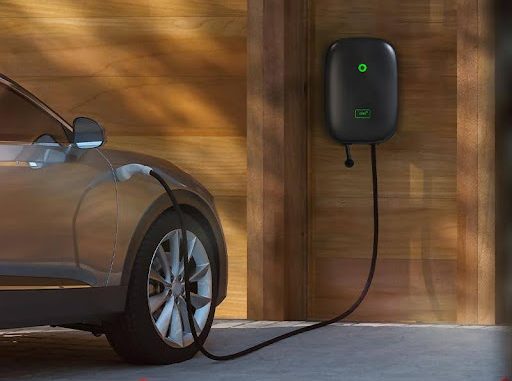
Joint Commercial EV Charger
As the world shifts towards sustainable transportation, environmentally friendly electric vehicles (EVs) are gaining popularity. However, for electric vehicles to become a viable option for the masses, a robust charging infrastructure is essential. As a result, the government has introduced various incentives to encourage people to buy electric vehicles and install electric vehicle chargers.
Electric vehicle charger type.
H3:level1 Electric Car Charger: Ideal for overnight charging at home.
Level 1 charging is the most basic electric vehicle charging and is available to every electric vehicle owner. These chargers typically operate on 120 volts AC, and you just need to plug a Level 1 charger connected to your electric car into a standard home electrical outlet to start charging. The Level 1 electric vehicle has a charging speed of about 2 to 5 miles per hour, and while it’s convenient for residential charging, it may not be suitable for those who need fast charging or have high energy requirements.
- Level 2 electric vehicle charger: a popular choice.
The Level 2 charger provides a faster charging option. Level 2 chargers operate at a higher voltage (typically 240 volts AC) and charge at speeds of 10 to 60 miles per hour, depending on the specific charger and the vehicle’s on-board charging capability.
Level 2 charging is suitable for daily commuting, workplace charging, destination charging and many other situations. You usually find it at public charging stations, workplaces, and commercial properties. Secondary chargers offer a balance between charging speed and infrastructure cost, making them a popular choice for widespread adoption.
- Level 3 charging: DC fast charging.
Level 3 charging, also known as DC fast charging or fast charging, is the most powerful and fastest electric vehicle charging option available today. Unlike level 1 and 2 charging, Level 3 charging involves using direct current (DC) instead of alternating current (AC). Dc fast chargers can provide charging rates of up to 200 miles in 20-30 minutes, depending on the vehicle and charger specifications.
Dc fast charging is primarily designed for long-distance travel, providing drivers with fast charging during the journey. These chargers are typically located along highways and major travel routes, allowing electric vehicle owners to charge quickly on long trips. However, it is important to note that not all electric vehicles are compatible with level 3 charging, as it requires specific charging infrastructure and on-board technology.
Should I charge at home or at a public charging station?
The decision to charge an EV at home or at a public charging station depends on individual circumstances and priorities. For daily charging needs, especially for those with dedicated parking spaces, home charging provides unparalleled convenience and cost-effectiveness. However, public charging stations play a crucial role in facilitating long-distance travel and catering to urban dwellers without access to home charging.
Ultimately, many EV owners find a combination of both home and public charging to be the most practical solution. Home charging serves as the primary and convenient option for daily use, while public charging stations act as a reliable backup during extended journeys or unforeseen circumstances. As charging infrastructure continues to develop, more and more electric vehicle owners are looking for suitable EV charging solutions.
Convenient home charging:
Convenient charging experience: If you install an electric car charger at home, charging will be very convenient. With Level 2 home charging stations, EV owners can charge overnight or when not in use. Imagine waking up every morning and seeing a fully charged electric car. How great this convenient charging experience would be.
- Lower cost:
Charging an electric car at home is often more cost-effective than using a public charging station. As a result, residential electricity prices are typically lower, and some utilities offer discounted EV charging plans during off-peak hours, further improving the economics of home charging.
- More choices:
To charge at home, you can choose an electric car charger based on your charging needs. If time is not limited, car owners can choose slower level one charging, or purchase a home EV charger from an electric vehicle charger supplier for faster charging.
Commercial charging:
Public charging stations, especially Level 3 DC fast chargers, offer significantly faster charging than most home charging. This makes public charging ideal for fast charging, especially for those who need a quick charge. But DC chargers are expensive and charging costs more.
Finally
Many people are considering whether to buy an electric car charger, and the choice between home and public charging depends on personal needs. Home charging is the main option for everyday use, with public charging stations acting as a reliable backup during long journeys. If you want to buy an electric vehicle charger or inquire about electric vehicle charging solutions, you can consult Joint EV charger company.
As an EV charger distributor, Joint has advanced full-function testing equipment and has been awarded INTERTEK and SGS witness laboratory qualifications. It has obtained ETL, Energy Star, FCC, CE, CB, UKCA, TR25, IS014001, ISO45001 and other global Certification, accept customized services. In the future, Joint will continue to be committed to creating more high-quality electric vehicle chargers and working with partners to achieve sustainable development.

Leave a Reply